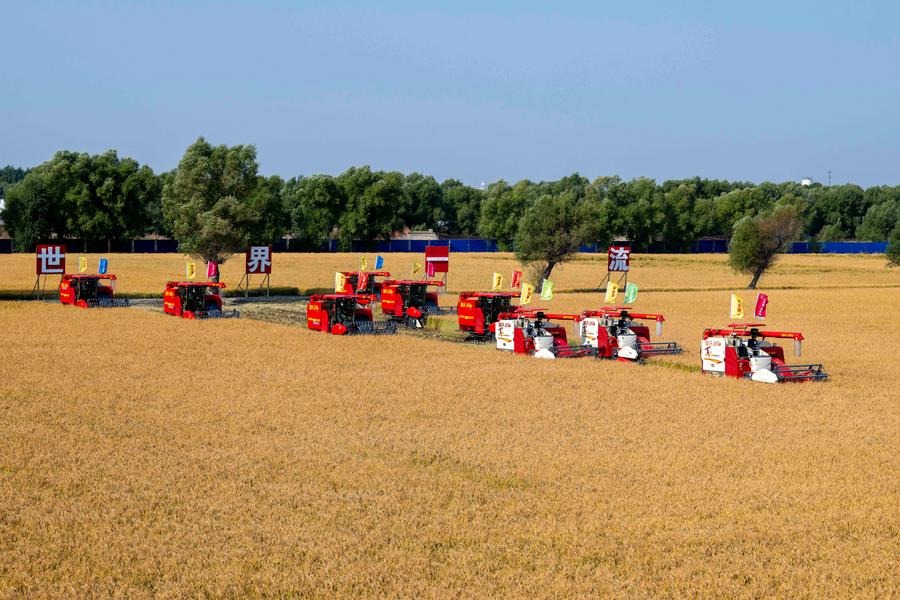CCDI: Bureaucratic anti-poverty approach common


Bureaucratic practices and impractical working styles were found to be common in institutions and provinces involved in the country's sweeping poverty reduction campaign, the Central Commission for Discipline Inspection said on Wednesday.
The findings - published on the CCDI's website - followed a central inspection targeting the poverty relief sector that started in October.
Those inspected included 13 provinces grappling with extreme poverty, mainly in the country's less-developed regions, along with two financial institutions - the Agricultural Development Bank of China and the Agricultural Bank of China.
They also included 11 central government departments such as the Ministry of Civil Affairs and the State Council Leading Group Office of Poverty Alleviation and Development, which are the major departments carrying out the country's poverty relief policies.
The CCDI said "bureaucratism" and "formalism" persist in a number of places and institutions. Shaanxi province, for example, has been urged to combat the tendency among officials to focus on the form of their work but overlook its practical results.
Hu Heping, Shaanxi's Party chief, speaking at a conference with the CCDI, pledged to organize a special campaign targeting corruption in the poverty alleviation sector, and learn a lesson from the case of Zhao Zhengyong, the province's former Party chief, who was investigated for suspected serious violations of Party disciplinary rules and laws in January.
Bureaucratic and impractical working styles also appeared in Anhui, Qinghai, Hubei, Yunnan, Jiangxi provinces, and in the Tibet and Xinjiang Uygur autonomous regions. The Agricultural Bank of China was identified with the same problem.
Qinghai has launched a large number of unnecessary inspections which put huge pressure on poverty relief officials at the grassroots level, as they are repeatedly required to provide supporting data; whereas Tibet has failed to punish those who indulged in bureaucratic practices, the CCDI said.
Other common problems found in the poverty relief sector include the failure to faithfully implement the central government's policies and the failure to carry out self-examinations.
For example, Qinghai was found to have failed to protect the ecology while relieving poverty. Chongqing's disciplinary commission, however, was blamed for being slow to punish officials who failed to act.
China has pledged to eradicate extreme poverty domestically by the end of 2020.
The number of rural poor was almost 100 million in 2012, when the central leadership ramped up efforts to fight poverty with targeted measures.
Last year the task was listed as one of the "three tough battles" that China must win in the next three years, along with preventing financial risks and tackling pollution.
- PLA expels an Australian warplane intruding into airspace over China's Xisha Islands
- China, Thailand to enhance cooperation in intelligent rehabilitation
- Sichuan reports first case of HIV-2 infection
- Global experts gather in Shanghai to address urban resilience
- Hainan suspends transport as Typhoon Fengshen approaches
- Liuyang fireworks set Guinness World Records




































